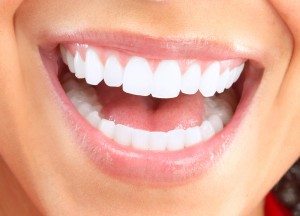
What Causes Tooth Sensitivity?
Ideally, the hard outer layer of your tooth, the enamel, is sufficient enough to act as a shield between hot and cold substances and the layer underneath the enamel, called dentin. Dentin is responsible for transmitting temperature sensations to the nerves inside your tooth. In addition, your gums act as protection against extreme temperatures for the roots of your teeth. In a person with sensitive teeth, there is some degree of dentin exposure or gum recession, so trigger foods start to literally get on their nerves.
Brushing Too Much or Not Enough
You might think that you can stave off tooth sensitivity by ramping up your regular brushing routine, but there is a balance. While gum disease and tooth decay are often direct results of poor brushing habits, you are also at risk for sensitive teeth if you brush too often, or too vigorously. Brushing too frequently, or using a hard-bristled toothbrush, can wear down your tooth enamel, which exposes the dentin layer underneath. Brushing too vigorously can eventually lead to gum recession, as well.
Relief for Your Sensitive Teeth
Soft-bristled toothbrushes and desensitizing toothpastes are a good place to start. Additionally, a diet high in acidic foods can obliterate enamel, so avoid substances such as citrus fruits, carbonated sodas, and vinegars if you’re starting to experience sensitivity due to enamel wear. Going to your West Houston dentist every six months for an exam and cleaning is another great idea. Dr. Gennero can assess your particular situation and recommend specific oral health care products that might offer some relief.
If biting into a popsicle has you clutching your jaw in discomfort, now is the time to schedule an appointment with Dr. Gennero. Call our West Houston dentist office at (281) 578-6200. We offer a variety of dentistry services to patients from the West Houston and Katy areas.







 What are dental sealants, and why are they important?
What are dental sealants, and why are they important? Millions of Americans suffer from
Millions of Americans suffer from  A beautiful smile will give you confidence, but appearance isn’t the only reason you should keep your teeth healthy. For years, research has shown a significant connection between oral health and overall health. Houston dentist Dr.
A beautiful smile will give you confidence, but appearance isn’t the only reason you should keep your teeth healthy. For years, research has shown a significant connection between oral health and overall health. Houston dentist Dr.  We use our jaws to eat, drink, and talk. If our jaw hurts, it can affect seemingly every aspect of our lives. Aside from being a pain in the…jaw, temporomandibular joint disorders, commonly called TMJ disorders or TMD, can cause headaches and neck pain. Today, our Katy dentist Dr. Deborah Gennero shares some facts about TMJ disorders, along with some tips on how to help keep from developing them.
We use our jaws to eat, drink, and talk. If our jaw hurts, it can affect seemingly every aspect of our lives. Aside from being a pain in the…jaw, temporomandibular joint disorders, commonly called TMJ disorders or TMD, can cause headaches and neck pain. Today, our Katy dentist Dr. Deborah Gennero shares some facts about TMJ disorders, along with some tips on how to help keep from developing them.










